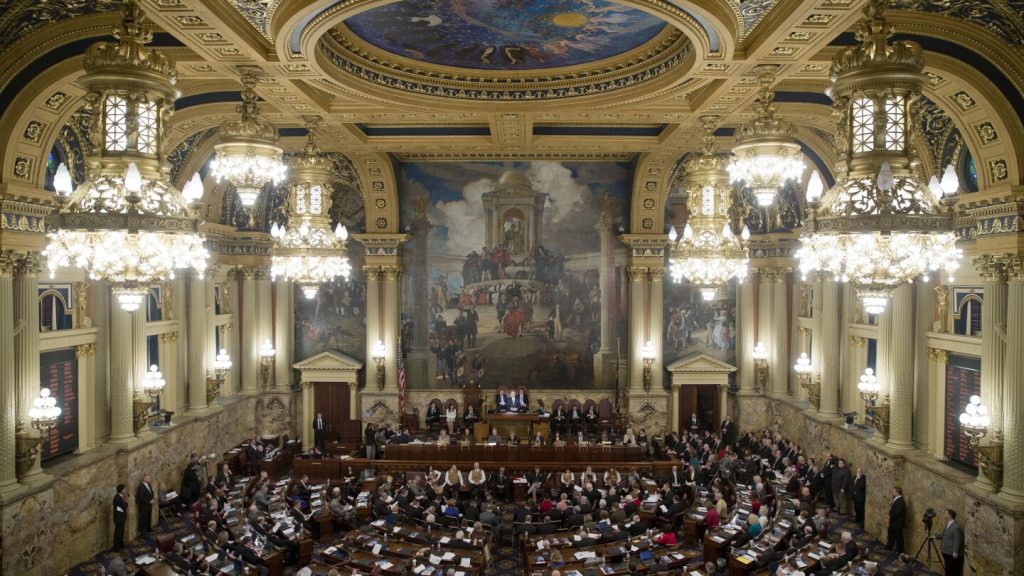The Pennsylvania House passed a Democratic-sponsored proposal to increase public school funding by billions of dollars and impose stricter rules on cyber-charter schools. The bill aims to address a report that found the state underfunds public school districts by over $5 billion annually and recommended phasing in increases over several years. The proposed legislation includes a new formula to distribute state education aid, with a phased increase of about $7 billion annually over seven years. The measure also includes regulations on cyber-charter schools, such as public disclosure requirements and capping payments per student at $8,000 a year.
While Democrats argue that the bill fulfills a constitutional requirement to provide equitable education to all children in the commonwealth, Republicans have raised concerns about the impact of the proposed changes on school choice options. Republican lawmakers have suggested that increasing funding alone may not address the systemic problems facing schools in crisis. It remains to be seen whether these policies, based on the Basic Education Funding Commission’s report, will survive budget negotiations with the Republican-controlled state Senate, as some Republican leaders have called for instructional changes to improve student outcomes instead of just increased funding.
Advocates for increased K-12 spending are hopeful that the current political climate, with a projected $14 billion state surplus and a recent court decision highlighting the inadequacy of the state’s school funding system, may pave the way for a major boost in education funding. School districts that are considered underfunded in Pennsylvania often face challenges such as larger class sizes, underqualified teachers, and outdated resources. Democratic Gov. Josh Shapiro has proposed a $1.1 billion increase in public school funding, with a focus on the largest and poorer districts, many of which serve significant numbers of minority students and rely heavily on local property taxes for funding.
The state’s school funding system has been criticized for disproportionately impacting poorer districts and forcing local governments to raise property taxes to make up for the lack of state funding. A state judge’s ruling last year found that Pennsylvania’s system of funding public schools is inadequate and violates students’ constitutional rights to a comprehensive and modern education. With the state budget deadline approaching in three weeks, the debate over education funding in Pennsylvania is ongoing, highlighting the ongoing struggle to address disparities in public school funding and ensure all students have access to quality education.


